Imagine this—you’ve got your iPhone synced up, playlists ready, navigation set. You’re expecting your luxury car to greet you with Apple’s slick new CarPlay Ultra dashboard.
But instead? Nada. If you’re driving a new Mercedes-Benz, that seamless Apple experience might not be coming anytime soon. Yep, Mercedes-Benz made headlines by stepping away from Apple’s next-gen CarPlay Ultra. While most automakers are jumping onboard, Mercedes is cruising down a different digital road.
In this article, we’ll break down what Apple CarPlay Ultra actually is, why Mercedes is going its own way, and how this might affect you if you’re behind the wheel of a Benz. Whether you’re team Apple or team MBUX, buckle up—we’re diving deep.
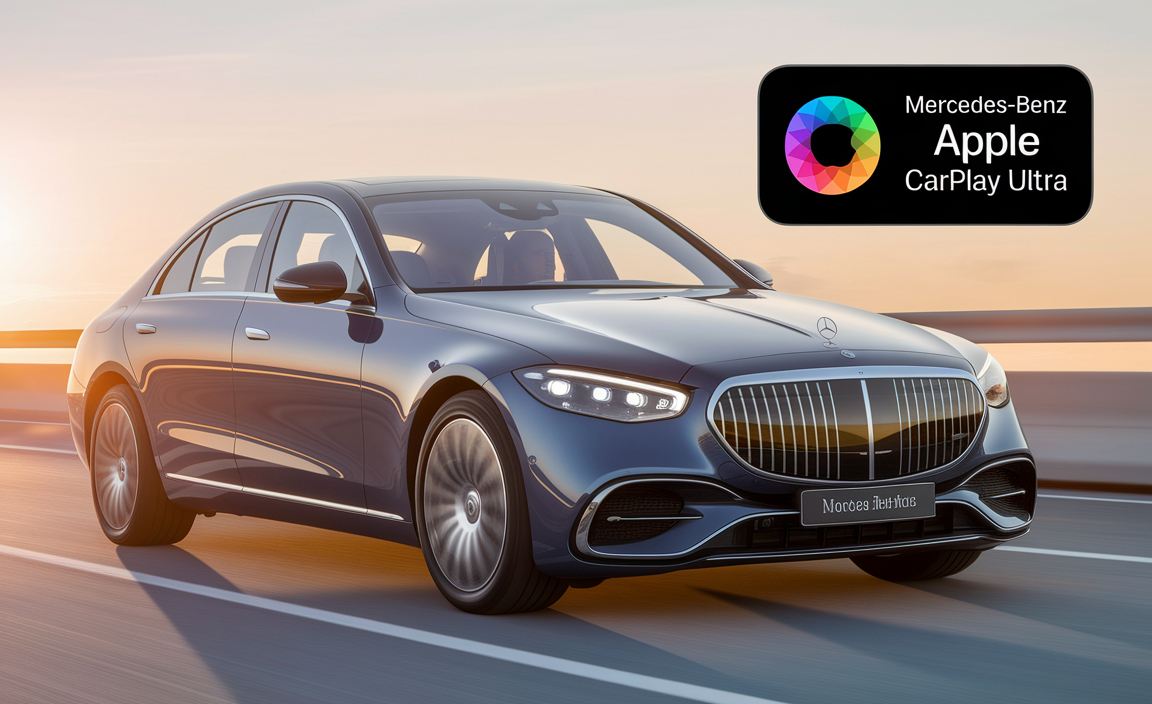
Overview of CarPlay Ultra
Apple’s CarPlay Ultra represents a significant leap in in-car infotainment, offering deep integration with vehicle systems, customizable interfaces, and enhanced user experiences. It extends beyond the central display to encompass instrument clusters, providing a seamless blend of iPhone functionality and car controls.
Features and Innovations
Deep Integration: CarPlay Ultra allows control over climate settings, radio, and vehicle data directly from the interface.
Customizable Themes: Automakers can collaborate with Apple to create brand-specific designs, ensuring a unique look and feel.
Enhanced Widgets: Drivers can personalize their dashboard with widgets displaying navigation, music, and vehicle information.
Deep Integration with Automakers
Apple has partnered with several automakers, including Aston Martin, to roll out CarPlay Ultra. These collaborations aim to provide a tailored experience that aligns with each brand’s identity.
Unique Designs Tailored for Each Brand
Through close collaboration, Apple and automakers can design CarPlay Ultra interfaces that reflect the brand’s aesthetics, ensuring consistency across the vehicle’s digital environment.
Mercedes-Benz’s Decision to Opt-Out
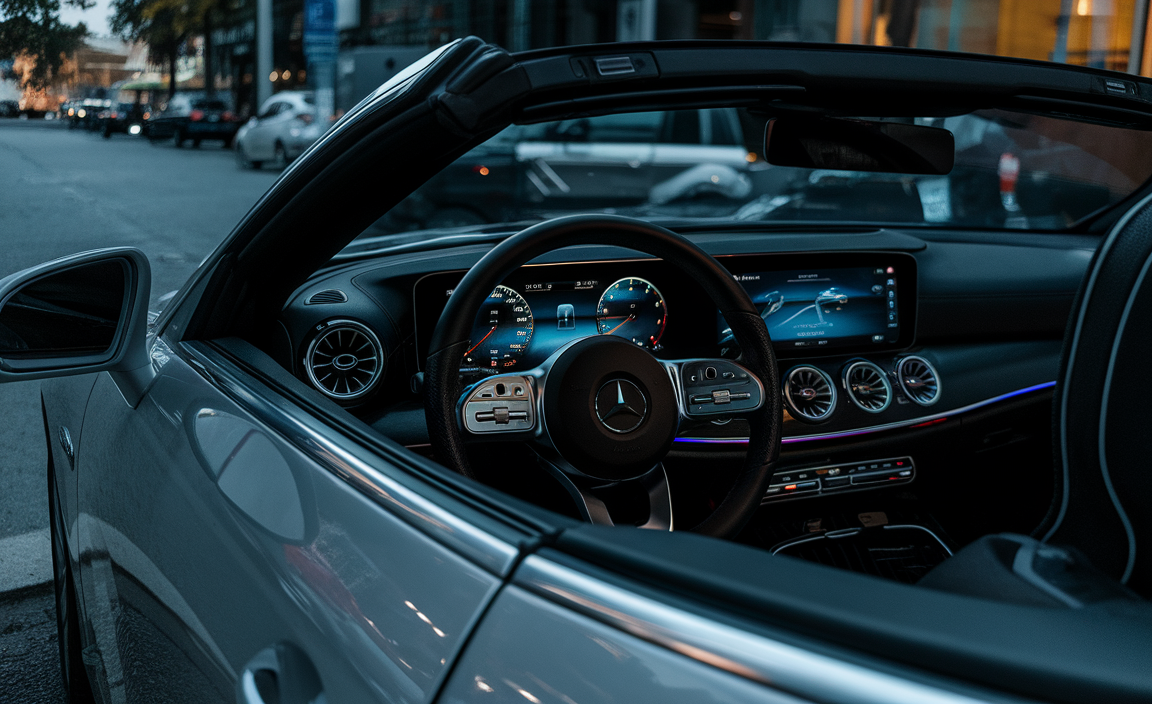
Despite the advancements of CarPlay Ultra, Mercedes-Benz has chosen not to integrate this system into its vehicles. The company prefers to maintain control over its user interface and data, focusing on developing its proprietary operating system in partnership with Google.
Apple wants CarPlay Ultra to become the default interface for future vehicles. But if luxury brands like Mercedes hold out, Apple may face challenges with wider adoption.
Apple has the software magic, but not every automaker is ready to give up the keys.
This also signals a possible tech turf war in cars—Apple, Google, and automakers are all vying for dashboard dominance.
Reasons Behind the Decision
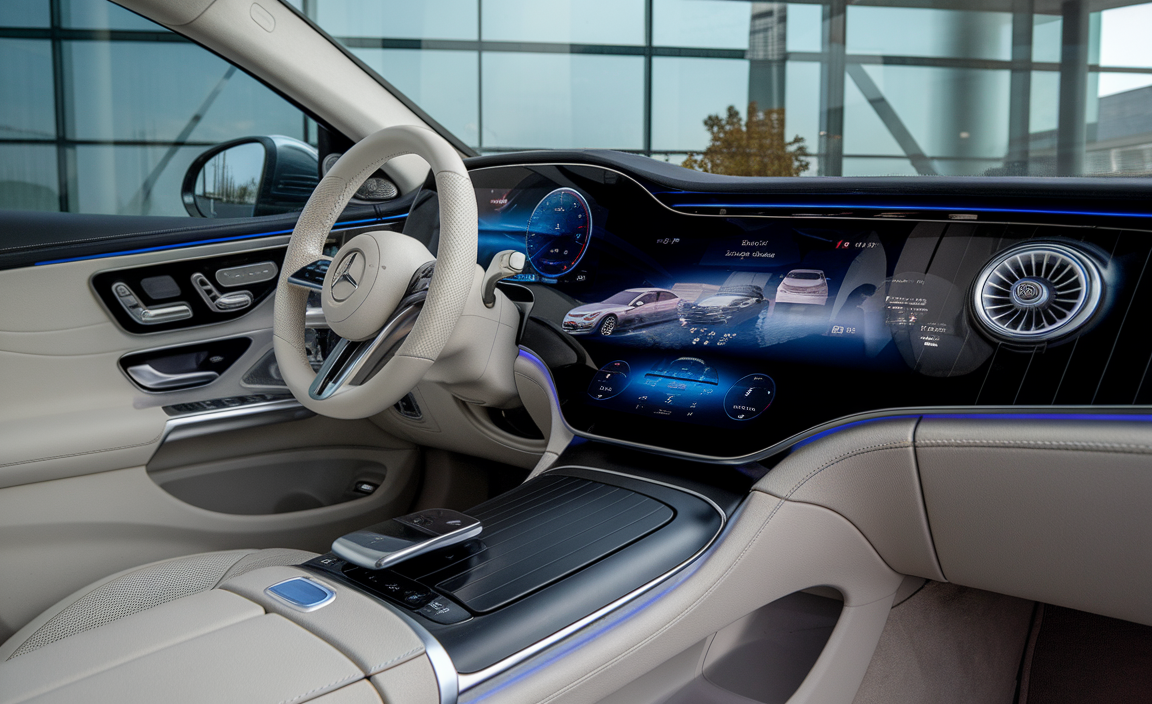
So why did Mercedes, a brand that prides itself on tech-forward thinking, skip this flashy new feature?
Mercedes-Benz aims to retain ownership of user data and vehicle interface, avoiding reliance on external tech companies. By developing its system, Mercedes-Benz can offer a unique user experience tailored to its vehicles. Collaborating with Google allows Mercedes-Benz to integrate advanced navigation and assistance features without ceding control to Apple.
1. Data Control and Ownership
Mercedes wants to maintain full control over customer data and how it’s used. Apple CarPlay Ultra would mean giving Apple access to key vehicle information.
2. Protecting the Brand Experience
Mercedes spent years building MBUX (Mercedes-Benz User Experience), their in-house infotainment system. CarPlay Ultra would essentially cover up that branded interface.
“We don’t want to be just a shell for someone else’s tech,” said one Mercedes executive anonymously.
3. Google Partnership
Mercedes has already teamed up with Google for mapping and other services. It’s a different kind of ecosystem, but it gives Mercedes more flexibility than Apple’s closed system.
4. Luxury Identity
Part of the luxury experience is cohesiveness. MBUX integrates with ambient lighting, massage seats, climate control, and more. Swapping it out for Apple’s UI may dilute that curated feel.
Impact on Mercedes-Benz Customers
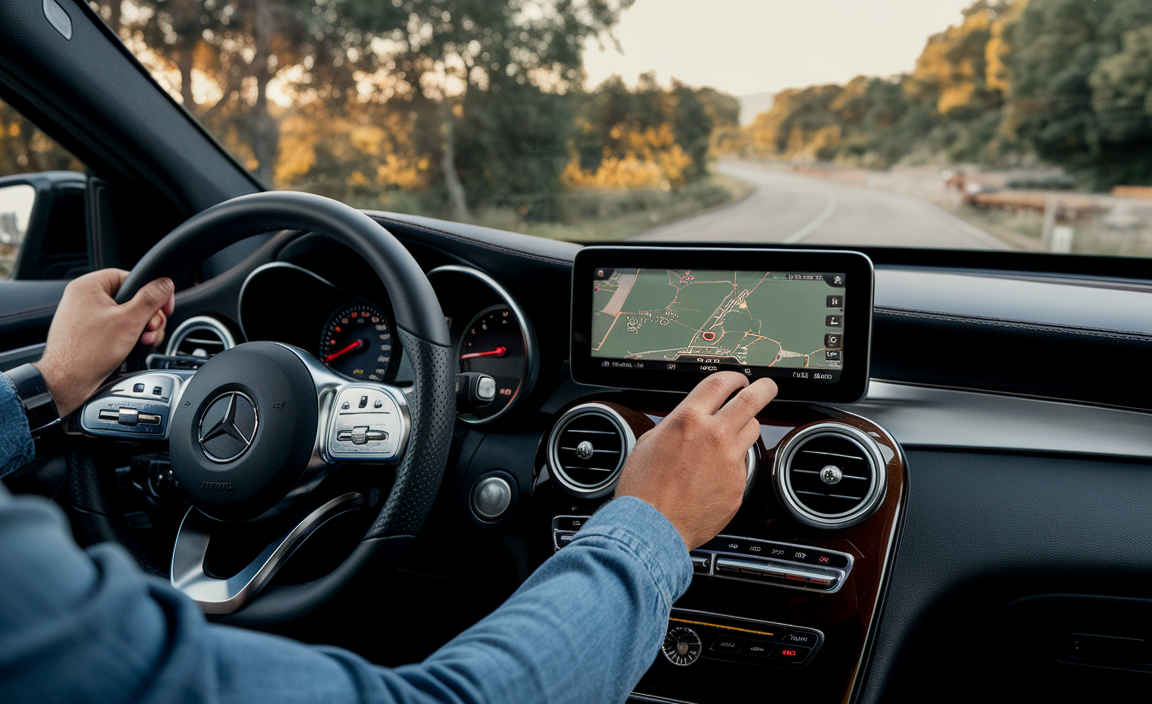
For Mercedes-Benz drivers, the absence of CarPlay Ultra means relying on the brand’s native infotainment system. While this ensures a consistent brand experience, it may lack some of the seamless integration and features that CarPlay Ultra offers.
Potential Advantages of CarPlay Ultra
Improved Software Capabilities: CarPlay Ultra offers a more intuitive and responsive interface, enhancing user interaction.
Enhanced Media Experiences: With direct access to apps like Apple Music and Podcasts, entertainment is more accessible.
Transformative Impact on In-Car Technology: The integration of CarPlay Ultra represents a shift towards more connected and personalized driving experiences.
Industry Reactions
The automotive industry has shown mixed reactions to CarPlay Ultra. While some brands embrace the integration for its user-friendly interface, others, like Mercedes-Benz, express concerns over data control and brand identity.
Consumer Perspectives and Expectations
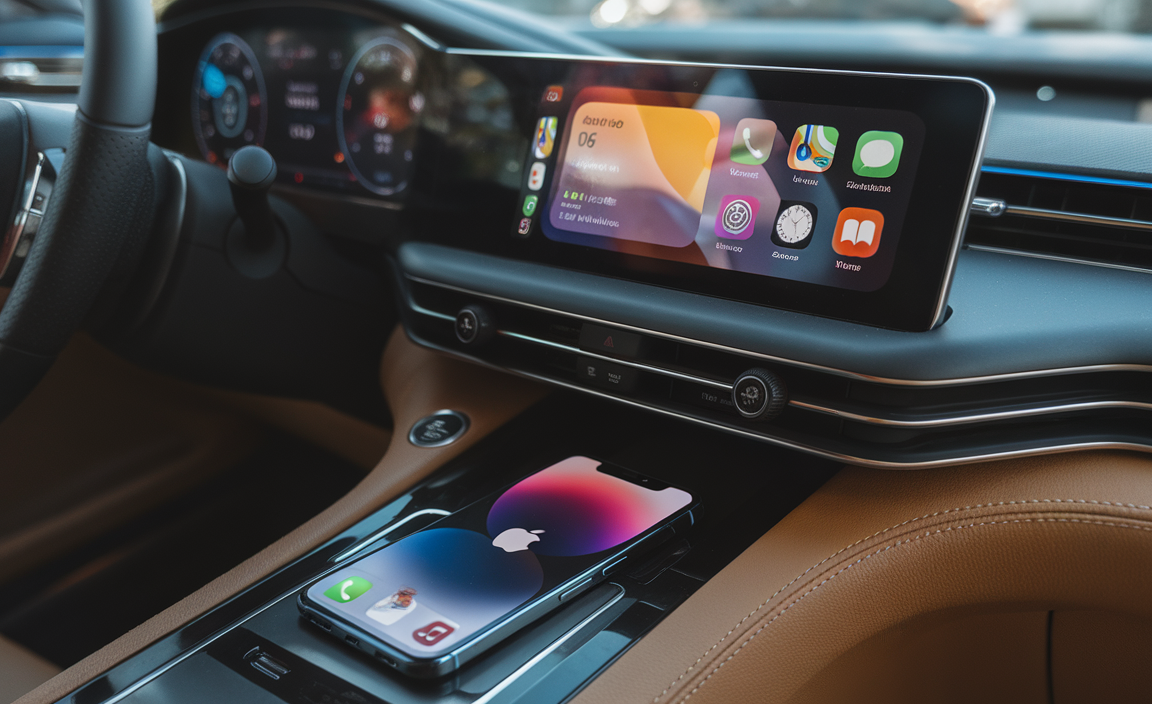
Consumers increasingly expect seamless integration between their smartphones and vehicles. CarPlay Ultra addresses this demand, but its adoption depends on automakers’ willingness to collaborate with Apple.
Responses from Other Automakers
Brands like Aston Martin have adopted CarPlay Ultra, highlighting its potential to enhance the driving experience. Others remain cautious, evaluating the trade-offs between integration benefits and control over their systems.
Future of Apple’s CarPlay
Apple envisions CarPlay Ultra as a standard in future vehicles, aiming for widespread adoption. The company’s focus is on creating a cohesive ecosystem that extends from the iPhone to the car dashboard.
Apple’s Vision for Further Integration
Apple plans to deepen CarPlay Ultra’s integration, potentially incorporating more vehicle functions and expanding its capabilities to offer a comprehensive in-car experience.
Implications for the Automotive Industry
The introduction of CarPlay Ultra signifies a shift in the automotive industry towards greater collaboration with tech companies. Automakers must balance the benefits of such partnerships with the need to maintain brand identity and control over vehicle systems.
Conclusion
Mercedes-Benz choosing not to adopt Apple CarPlay Ultra is more than just a tech headline—it’s a statement. They’re betting on their own systems like MBUX and deep partnerships with companies like Google to power the future of in-car tech. It’s a bold move that prioritizes control, customization, and branding over seamless Apple integration.
But for Apple fans, this might feel like a missed opportunity. At the end of the day, it all comes down to what kind of experience you want in your luxury car—ultimate brand synergy or the comfort of your favorite tech ecosystem. Mercedes isn’t following the crowd, and that might just be their ultimate flex.
FAQs
1. Why did Mercedes-Benz reject Apple CarPlay Ultra?
Mercedes wants full control over the user experience and data. They prefer their own system, co-developed with Google, instead of handing over control to Apple.
2. Will older Mercedes models still support regular Apple CarPlay?
Yes. Most current and older Mercedes-Benz models will continue to support the standard version of Apple CarPlay—just not the new Ultra version.
3. What is Apple CarPlay Ultra?
CarPlay Ultra is Apple’s next-gen system that controls everything from music and navigation to climate and instrument clusters—all from your iPhone.
4. Is CarPlay Ultra better than the original CarPlay?
Yes. It’s more immersive, customizable, and integrated with your car’s core systems like air conditioning, speedometer, and more.
5. Will Mercedes change its mind in the future?
It’s possible. If enough customers demand CarPlay Ultra or competitors gain an edge with it, Mercedes may reconsider.
6. Which car brands are using CarPlay Ultra?
Brands like Aston Martin and Porsche have embraced CarPlay Ultra, offering full dashboard integration in select models.
7. Is Mercedes developing its own infotainment system?
Yes. Mercedes is building a custom system called MB.OS with help from Google and other partners. It’s focused on keeping things seamless and secure.
8. Can you install CarPlay Ultra aftermarket in a Mercedes?
No. CarPlay Ultra requires deep vehicle integration that’s only possible from the factory with automaker collaboration.
9. Will this affect resale value of Mercedes vehicles?
Not significantly—for now. Most buyers still prioritize design, luxury, and performance over infotainment systems.
10. What should Mercedes-Benz owners expect going forward?
Expect more updates to their native system, MB.OS, plus tighter integration with Google Maps, YouTube, and Android-based features—whether you’re an Apple fan or not.